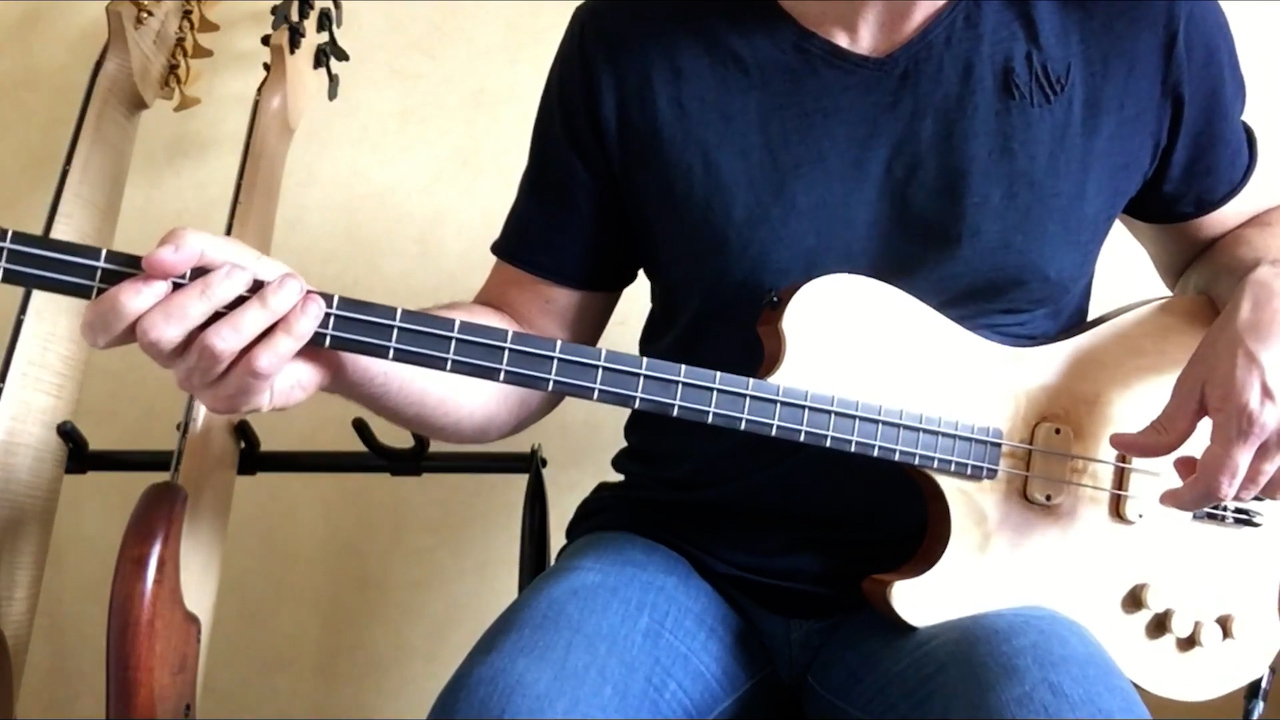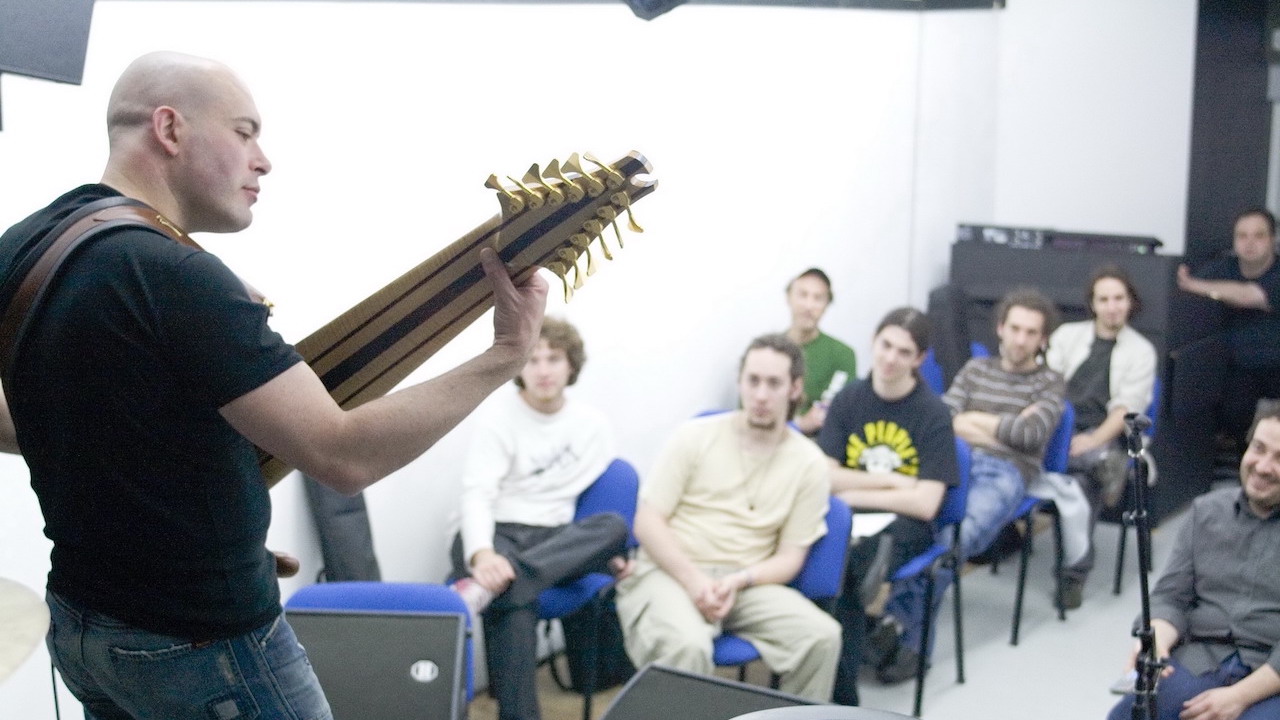Watch Yves Carbonne play Teen Town on a custom 2-string bass
Yup: TWO-string. French sensation Yves Carbonne demonstrates the mastery of multi-string basses that's wowed the likes of Marcus Miller and Michael Manring

Will the extended-range bass, or ERB to those in the know, ever be accepted by traditional players? “There’s a lot of categorisation in the bass world," explains French bassist Yves Carbonne. "If you play 4-string bass guitar, you’re categorised as a 4-string player – and if you play an extended-range bass, people look at you as if you’re an alien. If you want to be an artist, you need to find your own voice and not be like everybody else. It doesn’t matter how many strings are on your bass: if you’re a good artist you’ll still be good."
To prove his point, and in response to positive reactions about the 12-string sub-bass he often plays, Carbonne teamed up with UK luthier Jon Letts to create the YCII 2-string Bass. The bass is fitted with neodymium single-coil pickups, a Ben Woolley preamp and a push-pull active/passive volume. So how does it sound?
"I love it because it forces me to concentrate on my horizontal playing," he says. "The 2-string and the 12-string are opposed, but necessary aspects of the same thing, which is to use your imagination!"
Carbonne’s approach, while not unique – there is a healthy ERB scene featuring players as diverse as Stewart McKinsey and Bill Conklin – has attracted some big-name collaborators.
“I have Hadrien Feraud on my last album, Beyond the Waves, and Michael Manring and Marcus Miller on my album, A Life,” he reveals. “On one song Marcus plays the lead bass melody on his 4-string, while I play chords on a 6-string contrabass guitar and a 4-string sub-bass tuned an octave below normal.”

You heard the man: ‘extended range’ doesn’t have to mean an extended number of strings. Carbonne’s 4-string Fenders, even with their deep detuning, don’t sacrifice clarity for frequency. “The sub-bass E string is detuned one step, so it’s extremely low,” he says, “but I think you’ll be surprised because everything is extremely clear." He adds that the march of technology has made the ERB mission easier to achieve, too: “Cabinet technology is always progressing – you can hear more and more low notes clearly as the years pass.
"Anyway, even if you don’t feel the pitch of the note, it’s not really a problem, because you’re not playing in that range all the time. It’s like playing a piano – you don’t play the lowest notes all the time; you play them sometimes to add colour. I like the fact that there’s a unique tone – and with the 12-string you can go up into the guitar range, and even higher, and because it’s fretless it’s a tone that is completely different. When you get that high, the tone is closer to a sitar."
Carbonne is aware that some bass players find the ERB concept a little worrying: “It’s like a synthesizer. When that was a new instrument, a lot of people thought you could only do low-quality stuff with it – but in the right hands you can do great things with them. I understand that some people don’t approve, because if you took a 12-string bass to a blues gig it would be a little bit strange. Remember, the bass guitar was only invented in 1951 – it doesn’t have centuries of tradition like a double bass – so there are still lots of new possibilities!”
Well, if Beyond the Waves is anything to go by, the sooner the bass community opens up to the ERB scene the better. Now, where’s that .350 gauge 11th string…?
To find out more about Yves visit yvescarbonne.com
All the latest guitar news, interviews, lessons, reviews, deals and more, direct to your inbox!

Nick Wells was the Editor of Bass Guitar magazine from 2009 to 2011, before making strides into the world of Artist Relations with Sheldon Dingwall and Dingwall Guitars. He's also the producer of bass-centric documentaries, Walking the Changes and Beneath the Bassline, as well as Production Manager and Artist Liaison for ScottsBassLessons. In his free time, you'll find him jumping around his bedroom to Kool & The Gang while hammering the life out of his P-Bass.
